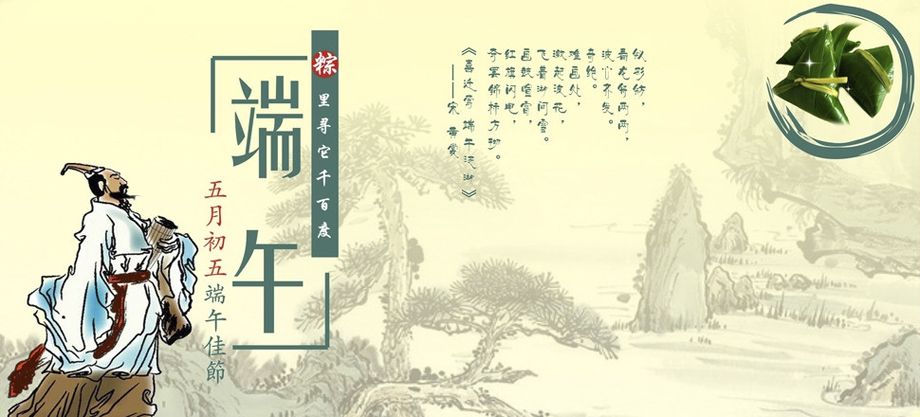(单词翻译:单击)
The Dragon Boat Festival
端午节
The 5th day of the 5th month of the lunar year is an important day for the Chinese people. The day called “Duan Wu”(meaning Day of Right Mid-Day) is observed everywhere in China.
每年农历的五月初五,是中国传统的端午节,又称端阳节、重午节、天中节等。
This unique Chinese celebration dates back to earliest times and a number of legends explain its origins.
过端午的习俗由来已久,大约开始于春秋战国之际。但是关于端午节的始源, 却有不同的说法。
The best known story centers on a patriotic court official named Qu Yuan, of the State of Chu during the Warring States Period more than 2, 000 years ago.
而其中流传最广、影响最大的是纪念屈原一说。

In a last desperate protest, he threw himself into the river and drowned.
屈原自感无力挽救楚国的衰亡,于五月五日自沉汨罗江而死。
Later Qu Yuan’s sympathizers jumped into boats, beat the water with their oars and made rice dumplings wrapped in reed-leaves (zongzi) and scattered them into the Miluo River in the hope that fish in the river would eat the rice dumplings instead of the body of the deceased poet.
老百姓很同情屈原的遭遇,为了避免屈原的尸体被鱼鳖吞食,便于五月五日这一天划着龙舟在江中驱赶鱼鳖,并将包好的粽子投放江中来喂鱼鳖,以保护屈原的尸体。


